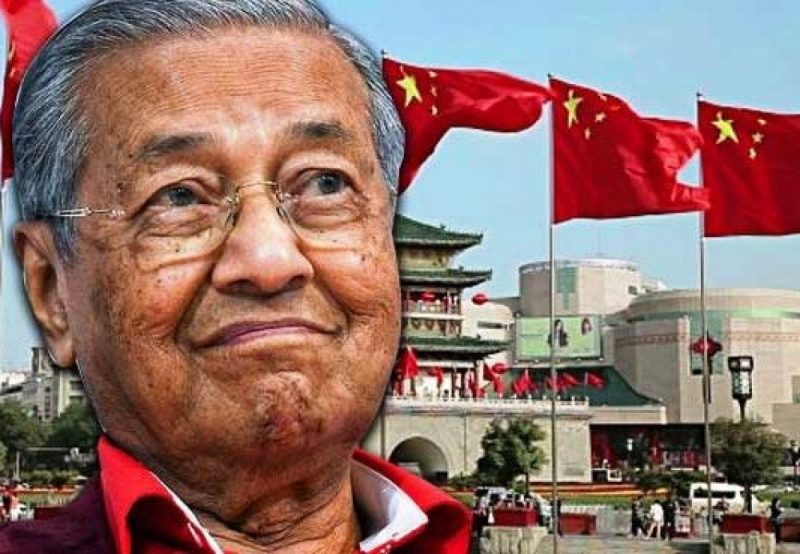BEIJING, Aug 21 ,, – Malaysian Prime Minister Mahathir Mohamad confirmed during a visit to Beijing on Tuesday that three China-backed projects totalling $22 billion will be cancelled until his country can find a way to pay its debts.
The projects include a railway connecting Malaysia’s east coast to southern Thailand and Kuala Lumpur, and two gas pipelines.
“I explained to (the Chinese leaders) why we can’t have the ECRL (East Coast Rail Link),” Mahathir told Malaysian reporters at the end of his five-day visit. “It’s about borrowing too much money, which we cannot afford, we cannot repay, and also because we don’t need those projects for Malaysia at this moment… our problem now is how to solve our financial deficit.”
Mahathir is trying to reduce Malaysia’s national debt, which has ballooned to some $250 billion.
After meeting Premier Li Keqiang on Monday, Mahathir said he believed China would help Malaysia resolve its fiscal problems. The Malaysian leader also warned against “a new version of colonialism happening because poor countries are unable to compete with rich countries just in terms of open free trade”.
The $20 billion rail project was contracted with China’s largest engineering firm, China Communications Construction Company, and mostly financed by a loan from the Export-Import Bank of China.
Malaysia’s finance ministry said in July that 88 percent of the cost of two gas pipeline projects costing 9.4 billion ringgit ($2.32 billion) had been paid to the Chinese contractor despite only 13 percent of the work being completed.
One pipeline is in Malaysia’s Sabah state on Borneo island and the other runs from Malacca in peninsular Malaysia to the northern state of Kedah.
In May Mahathir shelved separate plans to build a high-speed railway between Singapore and Malaysia which had been agreed several years ago, saying it was too costly.
Despite the threat to revise China-linked contracts, Mahathir sought to strengthen business ties with Beijing during the trip.
China is the top trading partner of Malaysia, which is home to a substantial ethnic Chinese minority. Relations were warm under the previous government of Prime Minister Najib Razak, and Chinese investment in the country surged as Beijing signed deals for major infrastructure and construction projects.
But critics said there was often a lack of transparency and the terms, such as interest rates on loans, were unfavourable to Malaysia, fuelling suspicions about Najib’s real motives.
Najib and his cronies are accused of plundering billions of dollars from a sovereign wealth fund, 1MDB. Najib, who has been charged over the scandal, denies any wrongdoing.
—
Malaysian PM to scrap China-backed $22 bn projects

